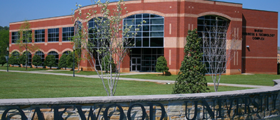Campus Visit Tips for Parents
Simple Steps for Parents to Make the Most of Campus Visits
by Jacque L. Smith
If you are looking for tips and simple steps for parents to make your campus visits a success, you can find them in abundance. Google offers 184,000,000 matches to a simple “get the most from a college visit” search. While digging through the first 30 or so pages of results, some top tips surfaced in the midst of the marketing and money-making distractions posing as expert advice.*
After multiple hours of searching, I found a tip that caught my attention: keep it simple. Of course, this is great advice in all areas of life, but it is especially easy to lose site of the simplicity goal in the mounds of paperwork, financial details and course lists surrounding college decisions. So to save you time and streamline planning, here are some simple steps for parents in the visit process that can help pave the way for a manageable college search.
1. Do your homework (yes, more of that).
Before landing on the soil of Utopia University, you and your student should be able to have most of your broadest questions answered. Web site content, brochure info, preliminary phone conversations should help narrow your focus before tours and on-campus conversations. Why make your first visit a blind date when you can get much of the FAQ results before you leave your house?
2. Know yourself (or your student).
Have your child review her school records before landing in front of an admissions staff member. Help her think through which high school classes she found the most challenging and rewarding. Encourage her to have her academic and extracurricular details top-of-mind so that even when she is nervous, she will be able to represent herself and her high school experience as well as possible.
3. Talk to the source.
Campus tours are helpful, and perky student guides can provide a great perspective on their school. So don’t skip the tour, but do try to expand your conversations with other campus experts. Sitting with professors in a major field of study is worthwhile but talking to students in that academic area may be even more enlightening. A policy and procedure conversation with a dean is a great start, but be sure to hear the experiences of students living on campus too. And capture the contact information for as many people as you can so that if you come up with a follow-up question, you will know who to ask.
4. Timing isn’t quite everything, but it’s close.
You can learn about a college on a weekend or during the summer months. But for the most information-filled visit, plan to be on campus on a typical in-session weekday. Finding the people you want to see will be easiest when most people are on campus. However, avoiding the busiest days of the year (homecoming, graduation, etc.) may also be a good idea so your visit doesn’t get lost in the shuffle of alumni and other parents.
5. Unite (or divide) and conquer.
Decide on the level of togetherness you and your student will have while touring the campus before you program the GPS and leave the driveway. Launching into college life for many families is a delicate balance bridging coming-of-age independence and comfort-of-home assurance. If you have a plan in advance, you will have the best chance at finding this balance and will both have a more relaxed and productive visit.
6. Ask. Listen. Repeat.
Have a question ready to roll out to anyone you meet. By asking several people the same question you will find a comprehensive picture of the institution and those who choose to live and work there. Examples: What word best describes this campus? What is the one thing on campus I must see while I’m here? When did you know this was the right place for you? And if you have a hard time diving into a question, refer to the next tip.
7. Ask for directions often.
If walking up to strangers to ask about campus culture sounds a little intimidating and/or awkward, use this trick to start a conversation: ask for directions. Even if you don’t need clarification about the location of the Career Center or Chaplains Office, asking someone along your path will give you the chance to see a little more of the campus experience. And with the pause your question creates, you can add a follow-up question. “Thanks for pointing me in the right direction. We are visiting this campus. Can I ask why you chose this college and when you knew it was a good fit for you?” Questions that begin with the word “when” usually lead to stories and stories can lead to a perspective that will add more to your visit than any brochure or admissions advisor meeting. This works not only for students, but also for employees. A campus where no one enjoys working is not a place where students enjoy living and learning.
8. Seek out signs.
If your student finds sky writing or some other blatant indication from above that he has landed on the right campus, then help him follow that inspiration. But if his (and your) prayers for direction are paced in less rapid divine timing distilled by patience, he will benefit from looking at the more literal signs on bulletin boards and other forms of campus conversations (student paper, dorm fliers, online news and calendars, etc.). What is being promoted? What campus or community events are on the horizon? What extracurricular options are students and employees investing their time in? Are spiritual activities on the campus calendar? Athletic options? Leadership seminars? Arts and entertainment? Service opportunities?
9. Concentrate.
In our multi-tasking, multi-input routines, it can be hard to shift gears long enough to absorb a new setting. But to make the most of your visit and soak in as many answers as possible—spoken and unspoken—you will need to give the time and place of your visit your full attention. This may mean leaving younger siblings out of the visit. (Sorry, but it is unlikely your 12-year-old will be able to dovetail on your 17-year-old’s college planning process.) And if you or your student can’t be trusted to part with texting for more than an hour at a time, you may also want to leave the mobile device in the car. Better yet, bury it in a tote and bring it along. It may be useful to pull it out to receive contact info from the new, informed and enthusiastic friends you meet while on campus. And the No. 1 tip for making the most of a college search visit …
10. Document.
Bring a camera, notebook or journal. In a few years, remembering this hectic time may bring you renewed peace about your college investment. Think about and record your first impressions independently from your child and then, soon after the visit, find a time to exchange ideas. Listen to your student. As she explains her highlights and/or confusion with his visit, you may be able to summarize the experience for her with helpful, non-pushy and prayer-filled clarity.
*Here are a few of the online resources I found the most useful while compiling this article:
http://www.googobits.com/articles/2977-how-to-get-the-most-out-of-your-college-visit.html
http://www.quintcareers.com/campus_visit.htmlhttp://collegeapps.about.com/od/choosingacollege/tp/8-Tips-for-a-Campus-Visit.htm
Have you scheduled your college campus visit(s) yet?
Browse the Campus Visit Guide for specific information on visiting any of the 13 Adventist colleges and universities. Or see more simple steps for parents to help your student throughout the college process.
| About the author … Jacque L. Smith, MS, ABC, graduated from Southern Adventist University (Collegedale, Tenn., she attended during the Southern College era) with a Bachelor of Arts in English, a minor in public relations and teaching certification for grades 7-12. She attended the University of Tennessee-Knoxville and graduated with a Master of Science in communication. She is thankful for the 16 years of Adventist education (grades one through college) that her hard-working and persistent parents provided as the springboard for her life. An accredited business communicator who is passionate about Adventist higher education, she served for 10 years at Union College (Lincoln, Neb.) in communication, development and marketing as director of public relations. In her current fulltime home-based role as vice president for motherhood operations, Jacque hopes and prays her two sons will eventually find as much joy and value in Adventist education as she did. |













